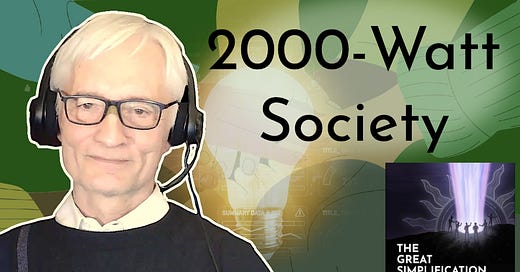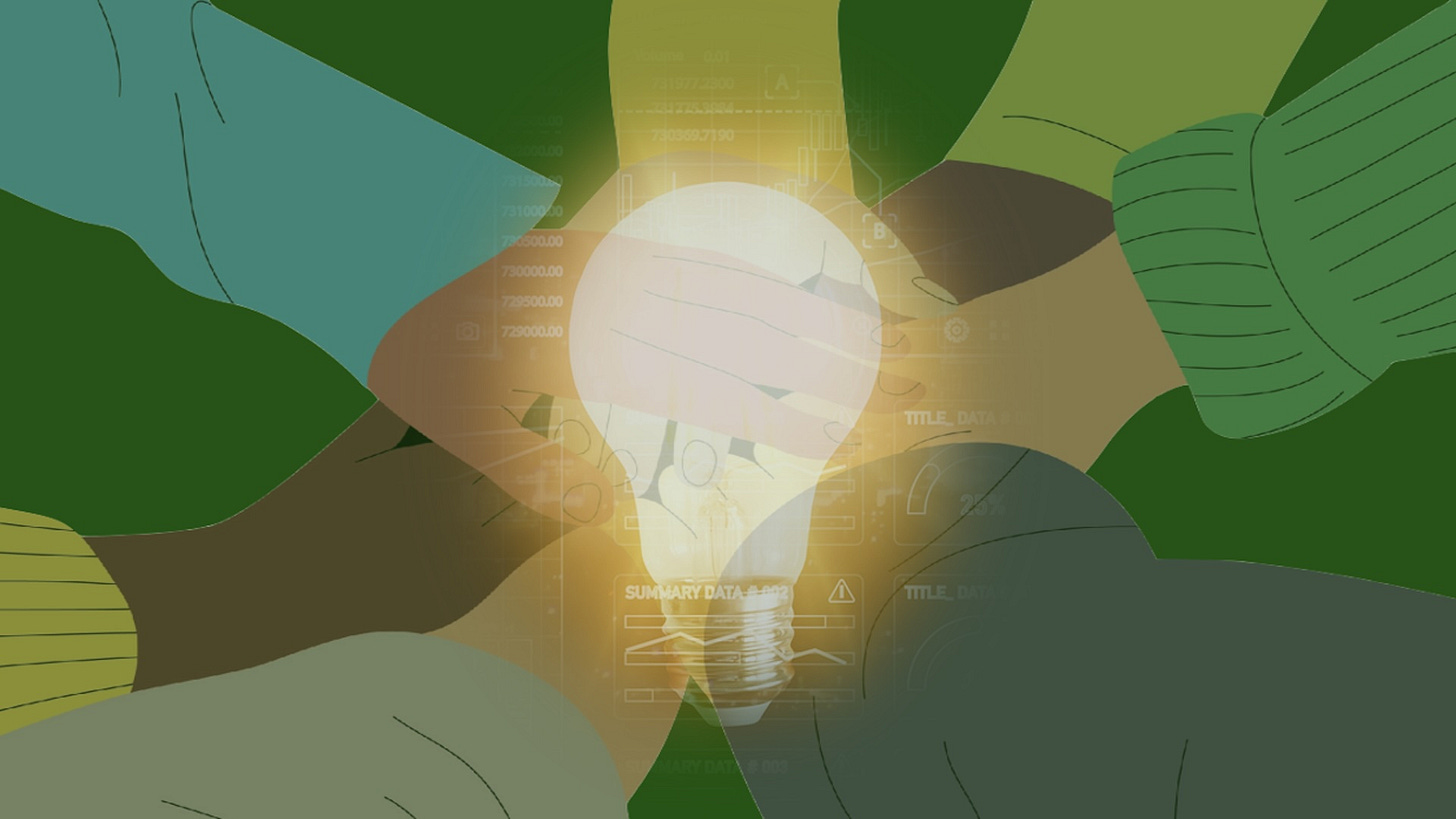2000-Watt Society: The Realities of Living a Low(er) Energy Lifestyle
The Great Simplification #166 with Peter Strack
Caught between increasing energy prices and rising carbon emissions, the idea of reducing our energy consumption is a practical and forward-looking necessity. Yet, with communities in the United States averaging ten thousand watts per year - with other Western countries close behind - our excessive energy consumption is built into both our physical and cultural infrastructure. How much energy do we truly need to lead fulfilling lives, and what changes would be necessary in our neighborhoods and cities to achieve that?
In today’s discussion, I’m joined by Peter Strack, a French researcher and author, to explore the concept of 2000-Watt Societies—innovative models that aim to balance reduced energy consumption with the well-being of the people who live there. Peter explains the historical context of energy consumption and origins of lower-energy communities, as well as the necessary changes in infrastructure, social dynamics, and personal habits to reduce energy consumption while sustaining a lifestyle that is fulfilling and caring for residents.
How can building relationships based on trust and reciprocity within our communities enhance resilience and help reduce energy consumption? What models already exist for communal infrastructure and sharing the labor needed for maintenance and care work? Finally, how could the 2000-Watt Society offer a more comfortable, connected way of living for more people – perhaps even more than high-energy Western lifestyles – while staying within our environmental and resource constraints?
In case you missed it…
In last week’s Frankly, I invited you to reflect on some of the most urgent questions of our time - and what they might mean for both our collective and individual trajectories ahead. Can open societies endure on the downslope of the Carbon Pulse? Is a future without large-scale war still possible? As the pace of change accelerates, the challenge isn’t just understanding what’s coming, but deciding how to respond.
If you appreciate The Great Simplification podcast…
Be sure to leave a review on your preferred podcast platform! Leaving reviews helps the podcast grow, which helps spread awareness of our systemic situation from experts in ecology, energy, policy, economics, technology, and community building so that we can better understand - and respond to - the challenges of the coming decade.
The Great Simplification podcast is produced by The Institute for the Study of Energy and Our Future (ISEOF), a 501(c)(3) organization. We want to keep all content completely free to view globally and without ads. If you’d like to support ISEOF and it’s content via donation, please use the link below.






Yes, there is some hope if society understand the real urgency of lowering the actual electric and overall energy consumption nowadays. Thanks for the intersting disscution.
Great show. Thanks for spreading the word. You give me some hope. Your guest are a who's who of Planetary issues.